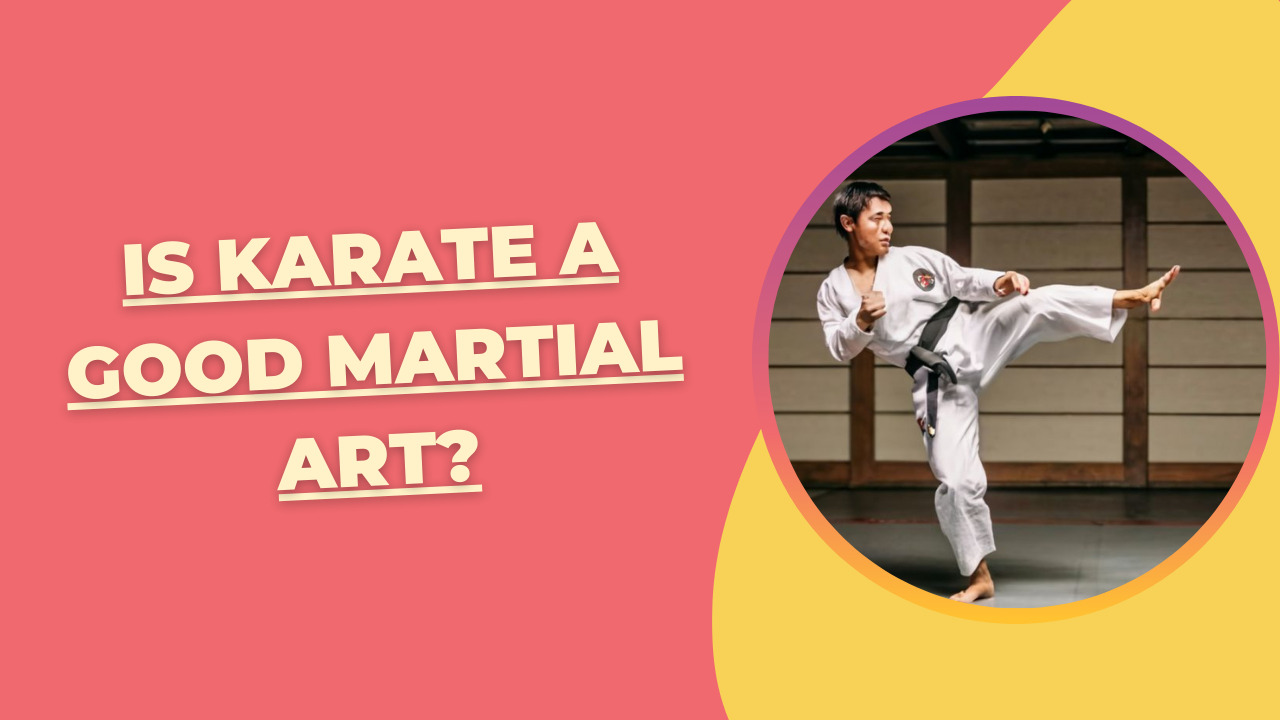Karate is a powerful martial art with a rich history and effective techniques. It emphasizes strong stances, precise strikes, and mental discipline. Training involves kata practice, sparring, and technique refinement. Karate enhances physical fitness, mental discipline, and self-defense skills. The discipline fosters inner peace, confidence, and personal growth. Its focus on efficient movements and impactful blows makes it a well-rounded form of martial arts. Considering its benefits, Karate is a formidable choice for those seeking self-improvement and practical skills.
Key Takeaways
- Karate emphasizes powerful strikes and efficient movements for effective self-defense.
- It offers physical fitness benefits like cardiovascular endurance, strength, and flexibility.
- Karate fosters mental discipline, focus, and self-control for personal growth.
- The practice of Karate enhances mental fortitude, resilience, and decision-making skills.
- Karate equips individuals with essential self-defense skills and situational awareness.
History of Karate
Exploring the historical roots of Karate unveils a rich tapestry of tradition, evolution, and cultural significance that has shaped this martial art into what it is today. Karate’s origins can be traced back to the Ryukyu Kingdom, now known as Okinawa, where it was influenced by Chinese martial arts. Over time, Karate underwent significant development, blending indigenous Okinawan fighting techniques with Chinese martial arts to create a unique combat system.
The development of Karate was also influenced by the integration of Japanese martial arts practices during the early 20th century. This fusion led to the standardization of Karate techniques and the establishment of various styles such as Shotokan, Wado-Ryu, and Goju-Ryu. These styles emphasized different aspects of combat, including striking, blocking, and grappling techniques.
The evolution of Karate techniques has been driven by the pursuit of physical, mental, and spiritual development. Practitioners hone their skills through kihon (basic techniques), kata (forms), and kumite (sparring), striving for perfection in each movement. The historical journey of Karate reflects a deep-rooted commitment to discipline, respect, and personal growth.
Key Techniques in Karate
The mastery of Karate hinges significantly on understanding and executing key techniques that encompass a blend of precision, power, and tactical finesse. Stance alignment is fundamental in Karate, as it provides the foundation for strong and balanced movements. By mastering the proper alignment of the feet, hips, and shoulders, a Karate practitioner can generate maximum power and stability in their techniques.
Striking techniques, such as punches, kicks, and blocks, are crucial components of Karate that require precision and control to be effective in both offensive and defensive situations.
Breathing control plays a vital role in Karate, as proper breathing techniques not only enhance physical performance but also help with focus and relaxation during training and combat. Footwork drills are essential in Karate to develop agility, speed, and the ability to move swiftly in different directions while maintaining balance and control.
Practicing these drills regularly improves a Karate practitioner’s overall mobility and coordination, allowing them to execute techniques with fluidity and efficiency. Mastering these key techniques is fundamental to advancing in the art of Karate and becoming a skilled martial artist.
Training Methods in Karate
Training methods in Karate are crucial for developing a well-rounded martial artist. Kata practice holds immense importance as it refines form and instills discipline.
Incorporating sparring sessions adds practicality to techniques, while a strong emphasis on technique ensures precision and effectiveness in combat situations.
Kata Practice Importance
Embodying the essence of tradition and discipline, the practice of Kata in Karate serves as a cornerstone for cultivating not just physical prowess but also mental fortitude and spiritual growth.
Kata embodies the mind-body connection, requiring practitioners to focus their minds while executing precise, powerful movements. This mental engagement enhances awareness, concentration, and control, essential for effective self-defense techniques.
Moreover, Kata serves as a form of muscle memory training, ingraining techniques deeply within the subconscious. By repetitively practicing these predetermined sequences, students develop fluidity, speed, and precision in their movements.
The meditative aspect of Kata practice also fosters a sense of inner peace and mindfulness, contributing to the overall well-being of the practitioner beyond physical fitness.
Sparring for Practicality
In refining practical combat skills, sparring stands as a dynamic training method in Karate that bridges the gap between technique execution in controlled environments and real-world application. Through sparring, practitioners engage in simulated combat scenarios, honing their reflexes, timing, and decision-making under pressure.
Various sparring techniques, such as Kumite in Karate, allow students to apply their learned techniques in a more fluid and dynamic setting, preparing them for the unpredictability of real-world self-defense situations. By experiencing different fighting styles and intensities during sparring sessions, practitioners develop adaptability and strategic thinking, crucial for effective self-defense.
This hands-on approach to training not only enhances physical techniques but also instills mental discipline and emotional control, essential for succeeding in real-world confrontations.
Focus on Technique
With a laser focus on technique, practitioners of Karate delve deep into the nuances of movement, precision, and execution to elevate their martial arts prowess to new heights. Technique refinement and precision training are at the core of Karate practice, emphasizing the importance of mastering each movement with utmost accuracy.
Through skill enhancement and form perfection, Karate practitioners strive for excellence in every strike, block, and stance. Training sessions are meticulously designed to polish techniques, ensuring that every motion is executed with maximum efficiency and effectiveness.
Effectiveness of Karate in Self-Defense
When considering the effectiveness of Karate in self-defense situations, its emphasis on powerful strikes and efficient movements stands out as a defining feature. Karate’s focus on developing strong stances, precise strikes, and impactful blows makes it a formidable martial art for self-defense scenarios. While Karate may not have the same immediate reputation as Krav Maga for self-defense, it offers a structured approach that can be highly effective with dedicated practice.
Karate’s prevalence in schools and dojos around the world speaks to its enduring popularity and recognized benefits in self-defense training. Many schools incorporate Karate into their physical education programs, introducing students to the fundamental techniques and principles of self-defense from a young age. This exposure not only helps students learn valuable skills in protection and awareness but also instills discipline and confidence.
Benefits of Practicing Karate
Practicing Karate offers a multitude of benefits that extend beyond physical fitness, including mental discipline and self-defense skills.
The rigorous training involved in Karate not only strengthens the body but also sharpens the mind, fostering discipline and focus.
Additionally, the practical self-defense techniques learned in Karate can empower individuals with the confidence and ability to protect themselves in various situations.
Physical Fitness Benefits
Karate cultivates physical fitness through a dynamic combination of cardiovascular endurance, strength training, and flexibility exercises. The practice of Karate offers significant cardio benefits, enhancing heart health and overall endurance.
The repetitive movements and intense techniques also contribute to substantial strength gains, particularly in the core, arms, and legs. Furthermore, the emphasis on kicking, punching, and blocking movements leads to notable flexibility improvements, increasing range of motion and reducing the risk of injuries.
Engaging in Karate not only enhances physical fitness but also serves as a form of stress relief, allowing practitioners to release tension and promote mental well-being.
Mental Discipline Training
With a focus on mental discipline and self-control, what key benefits does the practice of Karate offer beyond physical fitness?
Karate is renowned for its ability to enhance mental toughness, focus, concentration, and self-control. Through rigorous training and adherence to the principles of Karate, practitioners develop a strong sense of discipline that transcends the dojo and permeates all aspects of their lives.
The mental fortitude cultivated in Karate empowers individuals to face challenges with resilience and composure, enabling them to maintain clarity of thought and purpose even in the most stressful situations. This heightened mental discipline not only improves performance in training and competitions but also translates into improved decision-making, enhanced concentration, and a greater sense of self-control in daily life.
Self-Defense Skills Development
The practice of Karate equips individuals with essential self-defense skills that go beyond physical techniques, fostering a comprehensive understanding of personal safety and situational awareness. Through Karate training, practitioners develop confidence in their ability to protect themselves in various situations, which is crucial for personal security.
This martial art instills a heightened sense of situational awareness, enabling individuals to assess potential threats and react effectively. Karate emphasizes defensive tactics that emphasize using one’s body efficiently to deflect attacks and neutralize threats swiftly. Practitioners learn to react quickly and decisively, honing their reflexes and response times.
Conclusion: Is Karate Worth Pursuing?
After exploring the depths of its techniques and philosophy, one cannot deny the profound value that Karate brings to those who choose to pursue it. Karate instills not only physical strength and self-defense skills but also mental discipline, focus, and respect. The balance between consistency and intensity in training is a hallmark of Karate, allowing practitioners to progress steadily while also pushing their limits. This emphasis on continual improvement fosters a sense of personal growth and achievement that extends beyond the dojo.
When comparing Karate to other martial arts, its emphasis on striking techniques, powerful blows, and efficient movements sets it apart. While other martial arts may focus on grappling, ground fighting, or specific combat sports, Karate provides a well-rounded approach to self-defense and personal development. The kata forms, precise techniques, and traditional values embedded in Karate offer a unique experience that resonates with many individuals seeking both physical and mental enrichment. Ultimately, the decision to pursue Karate is a personal one, but its rich history, practical applications, and holistic benefits make it a martial art well worth exploring.
Frequently Asked Questions
How Does Practicing Karate Impact Mental Health and Overall Well-Being?
Practicing karate can positively impact mental health and overall well-being through improved focus and stress relief. The discipline, meditation, and physical activity involved in karate training can help individuals develop mental resilience and emotional balance.
Are There Different Styles or Variations of Karate, and How Do They Differ From Each Other?
There are various styles of karate, each with distinct techniques, forms, and philosophies. Differences can be seen in belt ranking systems, emphasis on sparring, self-defense applications, and traditional kata. Examples include Shotokan, Goju-Ryu, and Wado-Ryu.
What Are Some Common Misconceptions About Karate That People May Have?
Common misconceptions about karate include the belief that traditional forms are outdated compared to sport karate. Another misconception is the idea that karate is not effective for self-defense. Understanding the nuances of each aspect is crucial.
Can People of All Ages and Fitness Levels Participate in Karate Training?
Karate training is accessible and inclusive, catering to people of all ages and fitness levels. Participants benefit from improved health and longevity through physical conditioning, mental focus, and self-discipline. Its structured approach fosters growth and well-being.
How Does Karate Promote Discipline and Respect in Its Practitioners?
Karate imparts self-discipline through rigorous training, fostering mental strength and focus. It instills confidence by challenging individuals to push beyond limits. Emphasizing respect for instructors and peers, it cultivates leadership qualities and integrity in its practitioners.
Conclusion
In conclusion, the history of Karate reveals its effectiveness in self-defense through key techniques and rigorous training methods. Practicing Karate offers numerous benefits, including improved physical fitness, mental discipline, and self-confidence.
Its rich tradition and practical application make Karate a valuable martial art worth pursuing for individuals seeking a holistic approach to personal development and self-defense skills.

